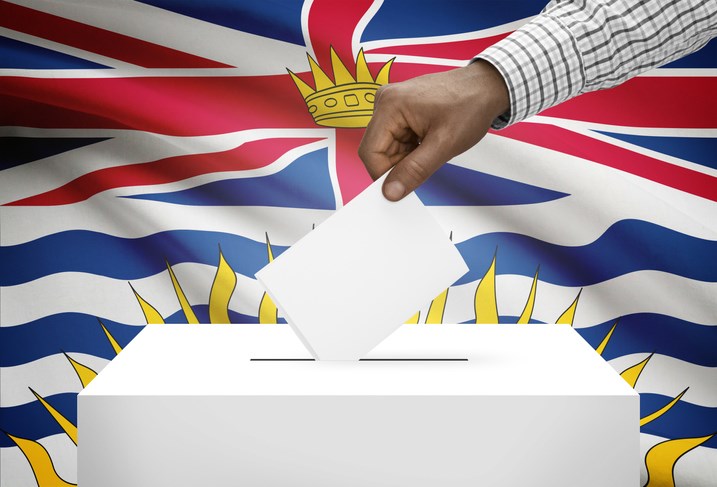An increase in the use of mail-in ballots could mean British Columbians won’t find out who won the election until weeks after voting day on Oct. 24.
While votes cast on voting day and in advance polls are counted on Oct. 24, absentee ballots — including mail-in ballots — aren’t counted for at least 13 days to allow a “rigorous screening process” to ensure only one vote per person.
This year, that means Nov. 6 at the earliest.
Usually, that’s not a problem: In the 2017 election, only 6,500 mail-in ballots were cast.
This year, however, the number is expected to increase dramatically. Results from surveys in May and August conducted for Elections B.C. suggested 35 to 40 per cent of voters — up to 800,000 people — would prefer to mail in their ballot during a pandemic. By 6:30 a.m. Tuesday, Elections B.C. had already received 20,000 requests for mail-in packages.
B.C.’s chief electoral officer agreed it could be some time before B.C. has a confirmed government.
The system in place, created in 1996 to handle tens of thousands of mail-in ballots and made more efficient over time, can screen and count about 200,000 mail-in ballots in two weeks, Anton Boegman said Tuesday as he released the 2020 election plan.
“If it’s 800,000, it will take longer,” he said. “But our commitment is to make sure that the count is conducted as quickly as possible.”
British Columbians typically know by the end of election night which party has won the most seats and who has a good chance of forming government, said Hamish Telford, an author and University of the Fraser Valley political scientist. That might not be case this year.
“We might not be able to say definitively on the night of the election or the day after the election who’s won any seat, because if there were tens of thousands of ballots mailed in in every riding, then you can’t declare a winner,” Telford said.
“So we might have to wait a couple of weeks to get the answer, and then we’re, I think, in a very tenuous situation where John Horgan would continue to be premier with considerable executive authority but not clear that he has a mandate from the people to exercise that authority in the midst of a pandemic and a global economic depression.”
A close race in the last provincial election on May 9, 2017, created great uncertainty as the outcome was unknown in a couple of ridings.
The results weren’t known in Courtenay-Comox, for instance, until May 24 and the overall official final count wasn’t confirmed until May 28.
“So what we experienced in a minor way in 2017, we might be experiencing writ-large in this election,” Telford said.
The implications are that Horgan, who said he called the election to get political stability, could create the inverse, he said.
“We may find out after the election that we have quite a bit more instability, at least for a couple of weeks until we count all the ballots,” he said.



